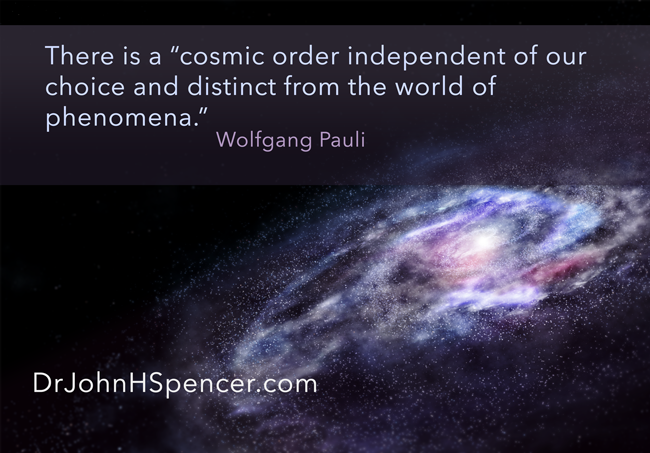There is a “cosmic order independent of our choice and distinct from the world of phenomena.” – Wolfgang Pauli.
“None of our scientific endeavors would be possible at all if the universe were not ordered, a vital point that tends to be overlooked by atheists afraid of facing its possible religious implications. Wolfgang Pauli, another key quantum pioneer, also believed that there is a “cosmic order independent of our choice and distinct from the world of phenomena”. What he means is that there is some kind of cosmic order that exists independently of the physical universe, and which nevertheless guides the unfolding of all physical reality. When we understand the implications of his words, we have to admit that he does not sound so different from a medieval theologian describing the infinite intelligence and power of God. Einstein, too, was devoted to striving to “comprehend a portion, be it ever so tiny, of the Reason that manifests itself in nature”. Pauli and Einstein are saying that the cosmic order or universal reason, what the ancient philosophers would have called the logos, permeates the universe. In other words, there must be an inherent rationality to the universe that never changes, but always is just what it is.”*
If Pauli is correct, then this cosmic order must at once be beyond the physical universe and yet guide the unfolding of all physical reality. Einstein and many other eminent pioneering physicists also held similar views, which clearly have mystical implications — something nonphysical at the foundation of all physical reality. Unfortunately, our contemporary education system has been incredibly efficient at suppressing this vitally transformative information.
The Eternal Law not only brings to light such facts, but also offers a way to understand them, and to heal the rift between our holistic, intuitive side and our discursive rational cognition.
For those materialists who think that such mystical claims are simply nonsense, please don’t point your finger only at me, but point it also straight at Pauli and Einstein (and Heisenberg and Newton and Kepler, and many more).
*The Eternal Law, p. 17.
